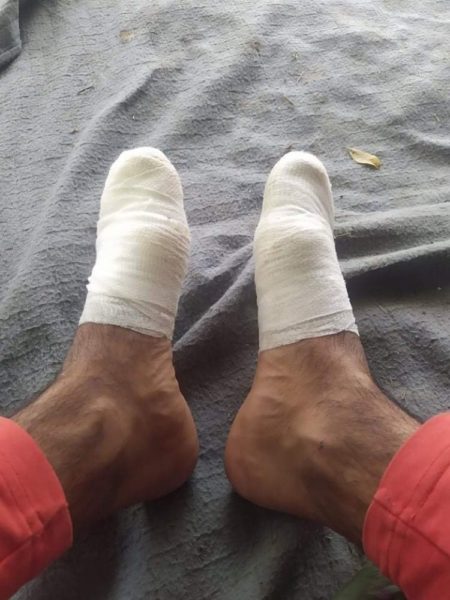The respondent is a 24-year-old man from Afghanistan. He has been in Bosnia and Herzegovina (BiH) for two years, and reports having experienced numerous (violent) pushbacks. He wanted to speak about this specific incident because he says that it left him with mental health problems such as severe insomnia, which he now has to take medication for.
The respondent and three of his friends, all four of them young men from Afghanistan, left Velika Kladuša, BiH in the late evening, arriving at the Croatian border shortly after midnight. They managed to cross the border and kept on walking in the country.
After two days of uninterrupted walking the respondent started taking painkillers against the strong pain he started to feel in his legs and feet. He expressed that without those pills he would have been unable to walk at that point.
The respondent and his friends still proceeded with their walk in the Croatian forest until they reached a river. During this time they suffered from the cold weather and snow. After eight days they reached a Croatian river, in which they had found the dead body of another person on the move in a previous transit attempt a few weeks before. The respondent described the experience of having to cross that river as very troubling and partially retraumatizing to him and his friends. He related that the last time they crossed this river a close friend of his started bleeding from his nose and mouth from the shock of seeing the dead body in the water.
“To much people dead in Croatian waters and Slovenian waters”
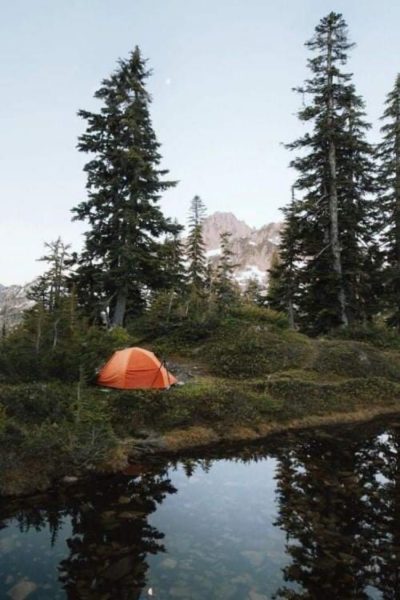
After a total of 10 days of walking inside Croatian territory, the group reached and successfully crossed the Slovenian border. At this point, they were weakened by the multitude of challenges they had to face during their walks in the forest, such as the cold, malnutrition, and mental health problems.
The group walked for another two days, reportedly reaching a distance of 10 km to the Italian border, where they were apprehended by a group of three officers while they crossed a bigger road. After the description of their uniforms and the circumstances of the apprehension, it is most likely that those were Slovenian police officers doing traffic controls.
The group immediately said that they were trying to seek asylum. The officers asked the group for their documents. After they explained that they did not have any, they were brought to what the respondent describes as a police station by five other officers in similar uniforms who came to pick them up in a van.
At the police station, the officers took the group´s phones from them and unlocked them. They looked at the maps-applications which they had installed on their phones to navigate their journey. The officers looked at the pins that they had saved and explained to the group that they did not believe their will to claim asylum because the maps on their phones showed saved locations in Trieste.
The respondent whose health had been further deteriorating during the trip was brought to a doctor at the police station. Reportedly, the doctor described the respondent´s health status as very precarious and allegedly, told the officers not to send him out of the country, because that could mean a risk to his life.
The group was detained in the police station for the night, without getting any information on what was happening to them and without being talked to at all. The next morning at around 1 pm the group was brought into a van and then driven to a Croatian city. The respondent’s memory of the ride is a bit blurry but he related that at the Croatian-Slovenian border, the group was handed over to Croatian authorities and just had to change from the Slovenian police car into the vehicle of Croatian authorities.
The respondent also related that the drive usually should only take an estimated three hours but somehow it was eight hours long. During this time the officers – reportedly Croatian and Slovenian – purposely chose very bumpy and curvy streets. The respondent and his friends suffered a lot in the back of the van, unable to breathe properly and feeling the pain of their injuries strongly due to the increased amount of movements the van made. The group was not allowed to leave the van during this time to use the toilet, drink water or eat something.
After eight hours they arrived in a Croatian city where three men from Morocco, three men from Kurdistan, and two men from Pakistan joined the group. The 12 of them were again placed in three vans by a total of 12 officers who were described as Croatian police and subsequently driven close to the Bosnian border by the latter.
The respondent declared to the officers: “My feet can´t walk.” after leaving the van. And reportedly, they replied:
“That is not my problem. That is your problem.”
After being extracted from the vans the group was forced to hand over all of their belongings, including power banks, phones, chargers, the little amount of food they had left, backpacks, and all of the clothes they were wearing, including their shoes. The group was left at the green border wearing nothing but their underwear.
The officers then proceeded to use extreme violence against the group. Reportedly, they beat them with sticks and their fists. Even when the respondent was laying on the ground, they did not stop beating and kicking. The officers broke several fingers and hands. The respondent was beaten on his upper back which later created a big hematoma. Even though the respondent himself was severely injured, he described the form of violence used against the men from Morocco as being even more violent and brutal.
“They just did not stop beating them. Too much beating.”
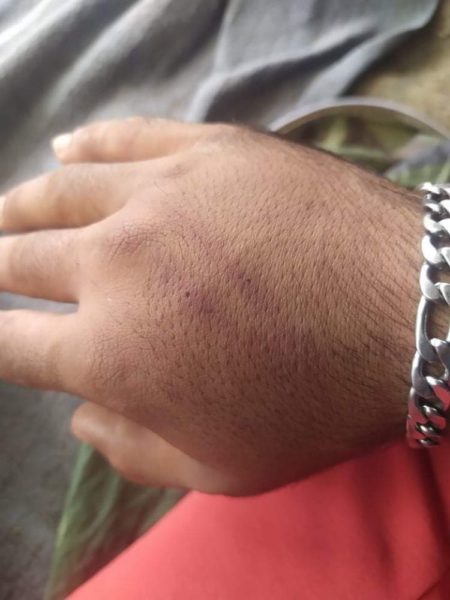
Broken hand.
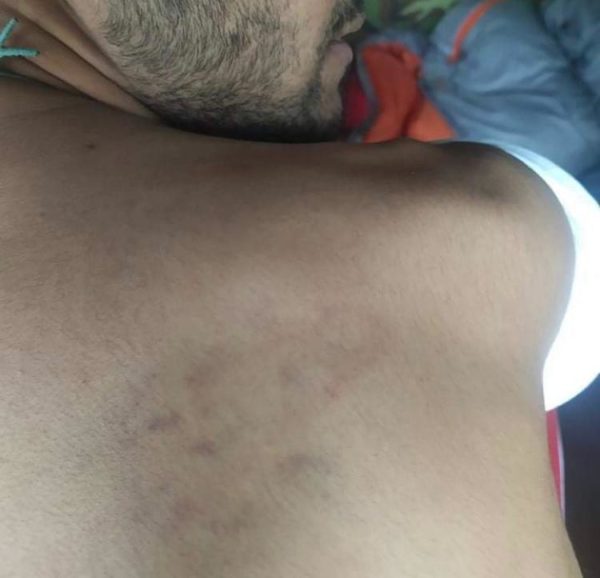
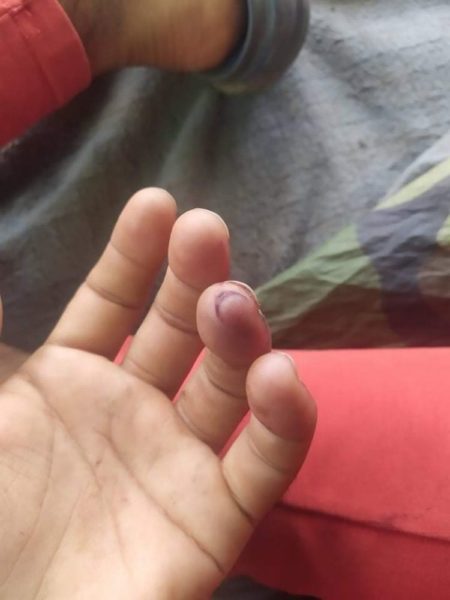
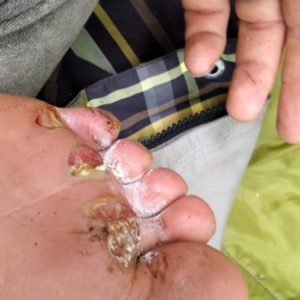
The group walked over the border into Bosnia and Herzegovina, where the men were left with nothing but their boxer shorts at 6 pm. They walked 25 km in nine hours throughout the night without shoes or clothes to finally reach Velika Kladuša.
“We could not stop. If we stop we die”
The respondent described their complete sense of desperation due to the combination of cold and pain from his several injuries and the fear for his life. The group arrived in Velika Kladuša at 9 pm in the evening and immediately went to the Miral camp to receive treatment. The respondent´s vital signs were very bad at that point so he was referred to the Intensive Care Unit of the hospital.
